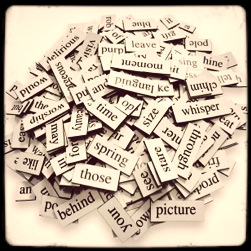Public relations is in crisis and it is too drunk on marginal successes to see it. This isn't a criticism. It's a fact, part of an objective analysis conducted every few months to determine what students need to glean from my class, Writing For Public Relations, at the University of Nevada, Las Vegas.
More than any other year, this year has marked the most profound transformation and most of it isn't necessarily for the better. The entire industry seems distracted, attempting to decipher the same challenges that almost everyone in communication has to reconcile — with social media damaging a good chunk of marketing and advertising, stock photography damaging photographers, templates damaging graphic designers, and crowd-sourced content damaging commercial writers. It's the same all over.
The creative and commercial arts are continually being crushed under the weight of becoming cut rate commodities. Maybe Keen was partly right. The argument that social media belongs to the young is the same argument that makes social media a non-profession. And knowing that alone makes it all the more perplexing why public relations professionals continue to fight for ownership of everything.
The five hot topics for public relations that are monkey wrenches in disguise.
Social Media. Public relations professionals keep making the case they deserve to own social media and maybe they already do in some circles. There aren't many firms left that shy away from listing it as a viable service. Some firms even secretly loathe it, but list it and assign the task to interns at cut rates.
The reason some practitioners said they deserve social is based on claims that they knew more about a peculiar combination of writing content, pop culture, and crisis management (which really means the most benign five-step crisis communication process). But what many of them deliver is paramount to publicity, with the measurement being publicity. That's not public relations. It's marketing.
And where that creates a quandary for public relations professionals in the future is that their field is being demoted from strategic thinking into commoditized task work that pays a lower rate. Ergo, public relations might "win" social media, but the cost won't be worth the expense as practitioners become online customer service representatives over the long term.
Content Management. Although not much different from social media, content marketing is the new buzz moniker for social media. It places more weight on writing and/or producing content (while avoiding old-school terminology like "blogs"), e.g., distributing relevant and valuable content to attract, acquire, and engage a clearly defined target audience with the objective of driving (ideally profitable action) customer action.
Public relations wants to own content marketing for the same reasons they want to own social media. They believe that content marketing plays to the strengths of public relations because brand content produced by public relations firms understands "the news agenda as opposed to a direct sales hook."
But all too often, what is happening in the hands of public relations is that exposure becomes the only measurement and it causes companies to burn up money "marketing content" as opposed to the products they make or the services they offer. Expect it to get worse as everyone demands eyeballs.
At the same time, the remaining news outlets continue to struggle too. In order to capture eyeballs, they are increasingly interested in reporting what's short and popular as opposed to the old school objective "news agenda." The value of a reporter isn't reporting relevance anymore; it's more about online eyeballs too.
Fewer reporters means that public relations' previous ownership of "media relations" has taken a hit as more and more companies would rather have a viral video on YouTube than a story in the New York Times. And now the challenge public relations is trying to take on is that the same people who gave us the dry-as-toast or marketing-fluff-and-puff press releases want us to believe they write better.
Search Engine Optimization. When Forbes broke the article that called public relations the new search engine optimization, the same story appeared in an alternative universe but with a different headline all together. It declared that public relations had committed online suicide.
Instead of forging relationships with various publics to meet mutual goals and establish an unparalleled level of trust, the new public relations professional tool box contains an arsenal of tidbits like "how to come up with better link bait" and "how to crowdsource for content when all your ideas suck."
While there is nothing wrong with knowing the tactics, it's still hard to believe that a profession so fearful of being marginalized would jump on the bandwagon and marginalize themselves. Ergo, the last person invited to sit at the executive table is the one who will drone on and on about "keywords."
Measurement Forever. Public relations is closing on a 100-year history since adopting a new name for a professional that grew out of propaganda and public relations measurement is still all over the map. Years ago, I made the case that measurement was simply a matter of measuring the outcome to the intent but too many returned to the ever popular (and easily gamed) measurement of exposure.
Some will put a price tag on it. Some will count on klout. And some will make up their own formula, with various degrees of including outcomes as a viable measurement. In more cases, public relations is now adopting the cheapest direct marketing measurements as there own while claiming they are light years ahead of marketing.
Look, most of us know that measurement will never be an exact science unless everybody agrees to assign values to intangible measures. Nobody readily agrees on the monetary value of things like positive public sentiment, brand loyalty, or varied degrees of trust and reputation, etc. And they never will because those valuations are dependent on the individual organization. It's about that simple.
What is public relations anymore, anyway?
When you take a long, hard look at what are top-of-mind issues for pubic relations today, most of it doesn't resemble public relations at all. Instead, a good amount of it smacks of the worst elements of digital marketing, direct response, and social media.
To punctuate the point, consider the definition of public relations as adopted during the First World Assembly of Public Relations Associations and the First World Forum of Public Relations in 1978.
Public relations is the art and science of analyzing trends, predicting their consequences, counseling organization leaders, and implementing planned programs of action which will serve both the organization’s and the public interest.
Compare it to a new unwritten definition that seems to be permeating the field today. When attempting to infuse those five monkey wrenches into the industry, we're left with something that feels lacking.
Public relations is the art and science of tracking pop culture and capitalizing on that data by writing marginalized link bait that will be seen by as many eyes as possible to boost site traffic where organizations can capture email addresses in order to spam the shit of those people while nurturing an individual reputation as a professional in order to boost klout scores and get perks until the day you write a business card book bought by colleagues who owe you for buying their business card books.
While there is nothing wrong with this, I suppose, one might wonder if the current changes sweeping the field are more akin to regression as opposed to evolution. How about you? Do you feel comfortable with the direction of public relations? Or maybe someone can come up with a more exact definition.
More than any other year, this year has marked the most profound transformation and most of it isn't necessarily for the better. The entire industry seems distracted, attempting to decipher the same challenges that almost everyone in communication has to reconcile — with social media damaging a good chunk of marketing and advertising, stock photography damaging photographers, templates damaging graphic designers, and crowd-sourced content damaging commercial writers. It's the same all over.
The creative and commercial arts are continually being crushed under the weight of becoming cut rate commodities. Maybe Keen was partly right. The argument that social media belongs to the young is the same argument that makes social media a non-profession. And knowing that alone makes it all the more perplexing why public relations professionals continue to fight for ownership of everything.
The five hot topics for public relations that are monkey wrenches in disguise.
Social Media. Public relations professionals keep making the case they deserve to own social media and maybe they already do in some circles. There aren't many firms left that shy away from listing it as a viable service. Some firms even secretly loathe it, but list it and assign the task to interns at cut rates.
The reason some practitioners said they deserve social is based on claims that they knew more about a peculiar combination of writing content, pop culture, and crisis management (which really means the most benign five-step crisis communication process). But what many of them deliver is paramount to publicity, with the measurement being publicity. That's not public relations. It's marketing.
Public relations wants to own content marketing for the same reasons they want to own social media. They believe that content marketing plays to the strengths of public relations because brand content produced by public relations firms understands "the news agenda as opposed to a direct sales hook."
But all too often, what is happening in the hands of public relations is that exposure becomes the only measurement and it causes companies to burn up money "marketing content" as opposed to the products they make or the services they offer. Expect it to get worse as everyone demands eyeballs.
Journalism Devolution. One of the primary drivers of public relations to become more like corporate-sponsored media outlets is the influx of journalists into public relations. Many of them make the move for two reasons: they want to make more money than they can as journalists or they were laid off by newspapers.
At the same time, the remaining news outlets continue to struggle too. In order to capture eyeballs, they are increasingly interested in reporting what's short and popular as opposed to the old school objective "news agenda." The value of a reporter isn't reporting relevance anymore; it's more about online eyeballs too.
Fewer reporters means that public relations' previous ownership of "media relations" has taken a hit as more and more companies would rather have a viral video on YouTube than a story in the New York Times. And now the challenge public relations is trying to take on is that the same people who gave us the dry-as-toast or marketing-fluff-and-puff press releases want us to believe they write better.
Search Engine Optimization. When Forbes broke the article that called public relations the new search engine optimization, the same story appeared in an alternative universe but with a different headline all together. It declared that public relations had committed online suicide.
Instead of forging relationships with various publics to meet mutual goals and establish an unparalleled level of trust, the new public relations professional tool box contains an arsenal of tidbits like "how to come up with better link bait" and "how to crowdsource for content when all your ideas suck."
While there is nothing wrong with knowing the tactics, it's still hard to believe that a profession so fearful of being marginalized would jump on the bandwagon and marginalize themselves. Ergo, the last person invited to sit at the executive table is the one who will drone on and on about "keywords."
Measurement Forever. Public relations is closing on a 100-year history since adopting a new name for a professional that grew out of propaganda and public relations measurement is still all over the map. Years ago, I made the case that measurement was simply a matter of measuring the outcome to the intent but too many returned to the ever popular (and easily gamed) measurement of exposure.
Some will put a price tag on it. Some will count on klout. And some will make up their own formula, with various degrees of including outcomes as a viable measurement. In more cases, public relations is now adopting the cheapest direct marketing measurements as there own while claiming they are light years ahead of marketing.
Look, most of us know that measurement will never be an exact science unless everybody agrees to assign values to intangible measures. Nobody readily agrees on the monetary value of things like positive public sentiment, brand loyalty, or varied degrees of trust and reputation, etc. And they never will because those valuations are dependent on the individual organization. It's about that simple.
What is public relations anymore, anyway?
When you take a long, hard look at what are top-of-mind issues for pubic relations today, most of it doesn't resemble public relations at all. Instead, a good amount of it smacks of the worst elements of digital marketing, direct response, and social media.
To punctuate the point, consider the definition of public relations as adopted during the First World Assembly of Public Relations Associations and the First World Forum of Public Relations in 1978.
Public relations is the art and science of analyzing trends, predicting their consequences, counseling organization leaders, and implementing planned programs of action which will serve both the organization’s and the public interest.
Compare it to a new unwritten definition that seems to be permeating the field today. When attempting to infuse those five monkey wrenches into the industry, we're left with something that feels lacking.
Public relations is the art and science of tracking pop culture and capitalizing on that data by writing marginalized link bait that will be seen by as many eyes as possible to boost site traffic where organizations can capture email addresses in order to spam the shit of those people while nurturing an individual reputation as a professional in order to boost klout scores and get perks until the day you write a business card book bought by colleagues who owe you for buying their business card books.
While there is nothing wrong with this, I suppose, one might wonder if the current changes sweeping the field are more akin to regression as opposed to evolution. How about you? Do you feel comfortable with the direction of public relations? Or maybe someone can come up with a more exact definition.













































